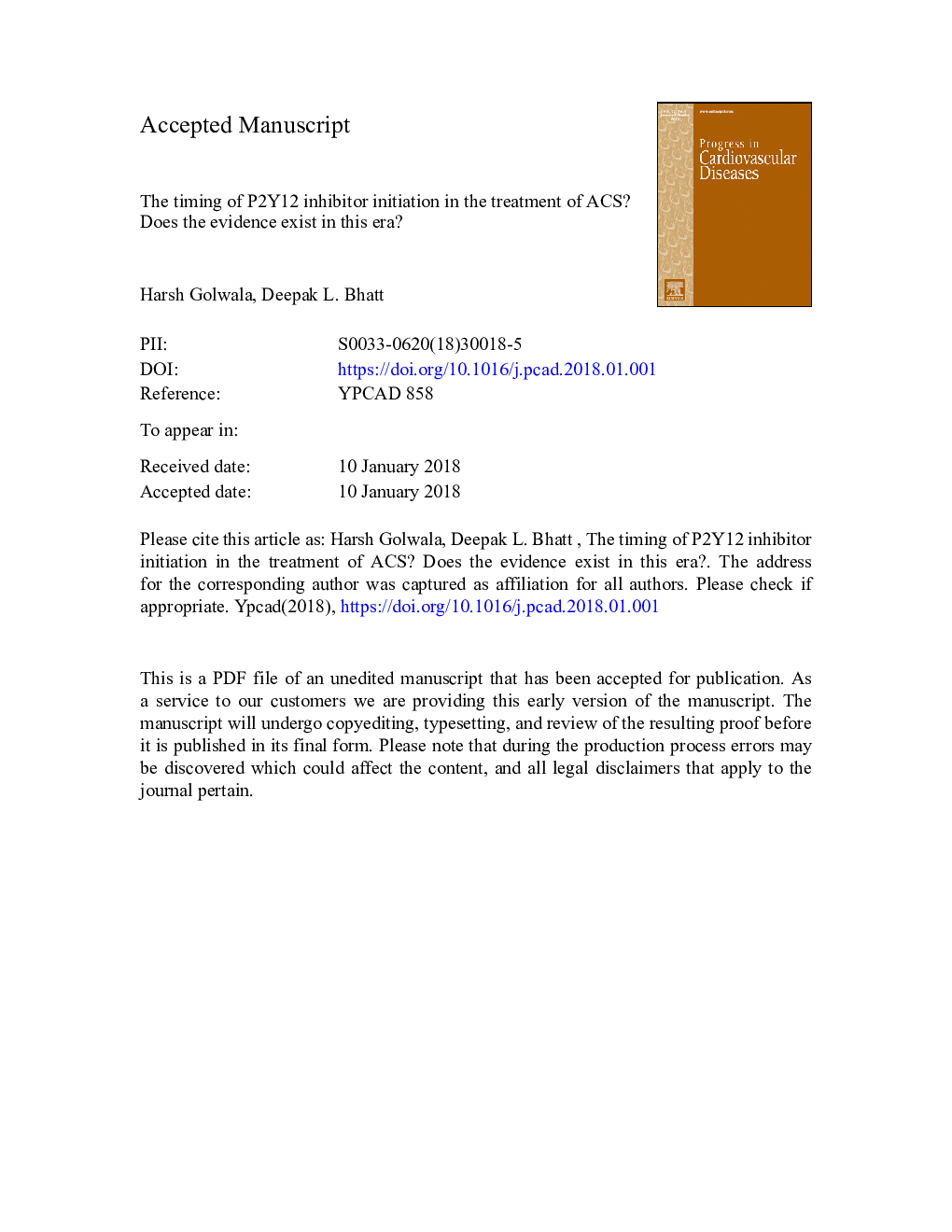| Article ID | Journal | Published Year | Pages | File Type |
|---|---|---|---|---|
| 8675248 | Progress in Cardiovascular Diseases | 2018 | 32 Pages |
Abstract
The majority of acute coronary syndromes (ACS) are well characterized as a consequence of plaque rupture and subsequent thrombosis. Antiplatelet agents targeting inhibition of P2Y12 receptors on the platelets have been shown to reduce future risk of cardiovascular events in this patient population. However, the timing of initiation of these agents, in particular, in patients managed with an invasive strategy with percutaneous coronary interventions (PCI) is debatable. The data supporting pretreatment with antiplatelet agents prior to PCI in ACS patients date to trials performed >15â¯years ago, wherein the time to PCI was >5â¯days, and hence, the utility of pretreatment with these agents in the contemporary era remains uncertain. In addition, newer antiplatelet agents such as prasugrel, ticagrelor, and cangrelor with rapid onset of action, pose a challenge for justification of oral antiplatelet pretreatment in patients with ACS. In this review article, we will discuss the pharmacokinetic properties of four different antiplatelet agents (clopidogrel, prasugrel, ticagrelor, cangrelor), as well as major randomized clinical trials assessing safety and efficacy of their role as pretreatment agents in patients presenting with ACS.
Keywords
ACSPCINSTEMIRCTSTEMIRandomized controlled trialAntiplatelet therapyMyocardial infarctionnon-ST-segment elevation myocardial infarctionST-segment elevation myocardial infarctioncoronary artery bypass graftingCABGacute coronary syndromesAcute coronary syndromeTarget vessel revascularizationcardiovascularpercutaneous coronary interventionP2Y12 inhibitorsTVRPretreatment
Related Topics
Health Sciences
Medicine and Dentistry
Cardiology and Cardiovascular Medicine
Authors
Harsh Golwala, Deepak L. Bhatt,
